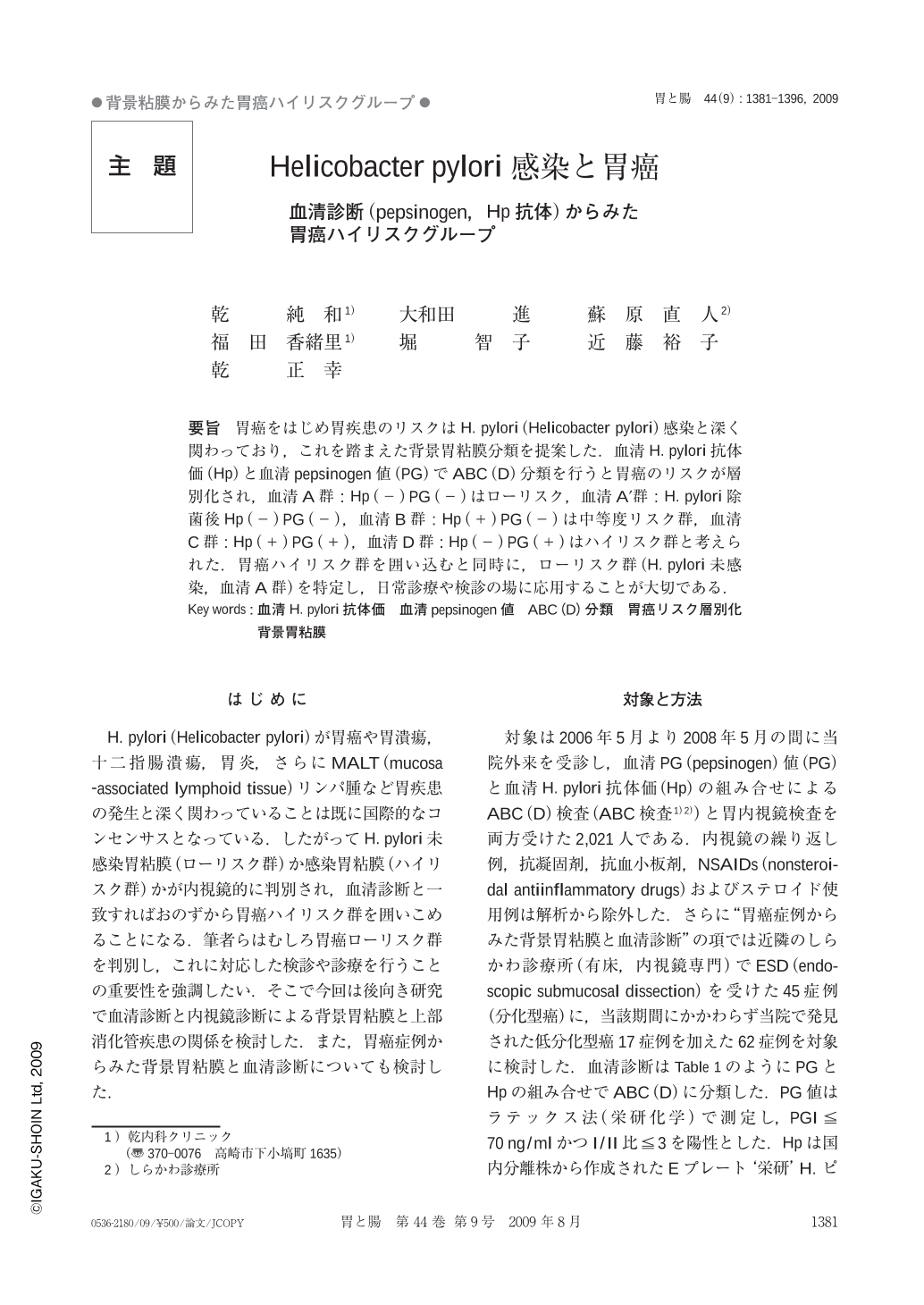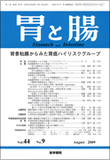Japanese
English
- 有料閲覧
- Abstract 文献概要
- 1ページ目 Look Inside
- 参考文献 Reference
要旨 胃癌をはじめ胃疾患のリスクはH. pylori(Helicobacter pylori)感染と深く関わっており,これを踏まえた背景胃粘膜分類を提案した.血清H. pylori抗体価(Hp)と血清pepsinogen値(PG)でABC(D)分類を行うと胃癌のリスクが層別化され,血清A群:Hp(-)PG(-)はローリスク,血清A′群:H. pylori除菌後Hp(-)PG(-),血清B群:Hp(+)PG(-)は中等度リスク群,血清C群:Hp(+)PG(+),血清D群:Hp(-)PG(+)はハイリスク群と考えられた.胃癌ハイリスク群を囲い込むと同時に,ローリスク群(H. pylori未感染,血清A群)を特定し,日常診療や検診の場に応用することが大切である.
The infection of Helicobacter pylori(H. pylori)is the strongest known risk factor for developing gastroduodenal ulcers and the first bacterium to be classified as a carcinogen in the development of gastric adenocarcinoma. Based on a patient's being H. pylori infected or not, we proposed a new endoscopic classification of gastric mucosal status. The serology-based stratification ABC(D)according to anti-H. pylori antibody(Hp)and pepsinogen levels(PG)proved to be effective in predicting the risk of gastroduodenal disease. Concerning gastric cancer development, group A ; Hp(-)PG(-)individuals are at low-risk. In group A′;(H. pylori eradicated)and group B ; Hp(+)PG(-)individuals are moderate-risk. In group C ; Hp(+)PG(+)and group D ; Hp(-)PG(+)individuals are high-risk. Accurately and noninvasively identifying the low-risk group(non-infected H. pylori, group A), for gastroduodenal disease will be of great benefit for patient management in clinical practice and mass screening for gastric cancer.

Copyright © 2009, Igaku-Shoin Ltd. All rights reserved.


